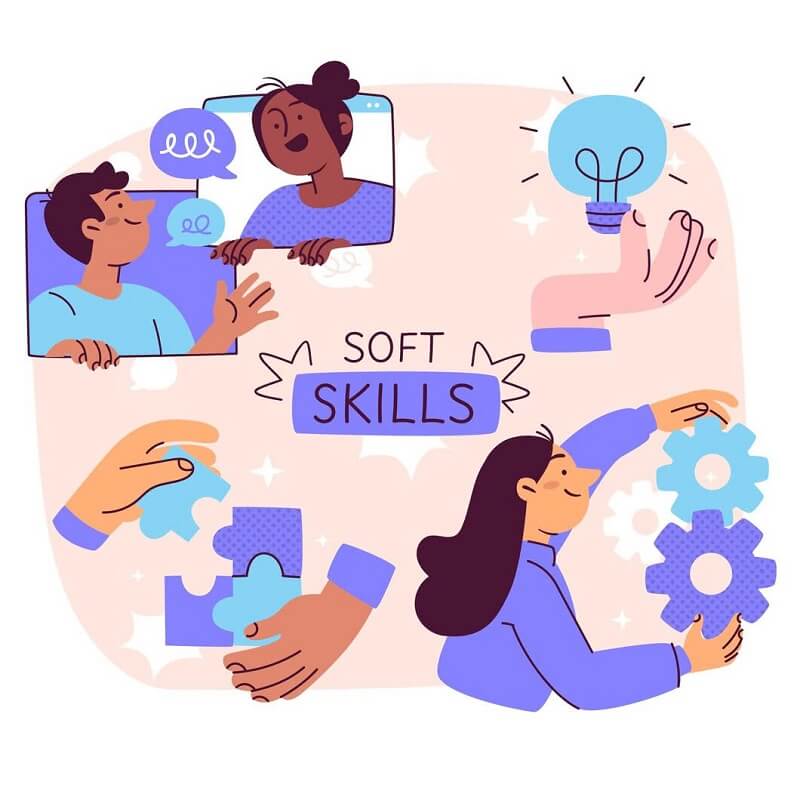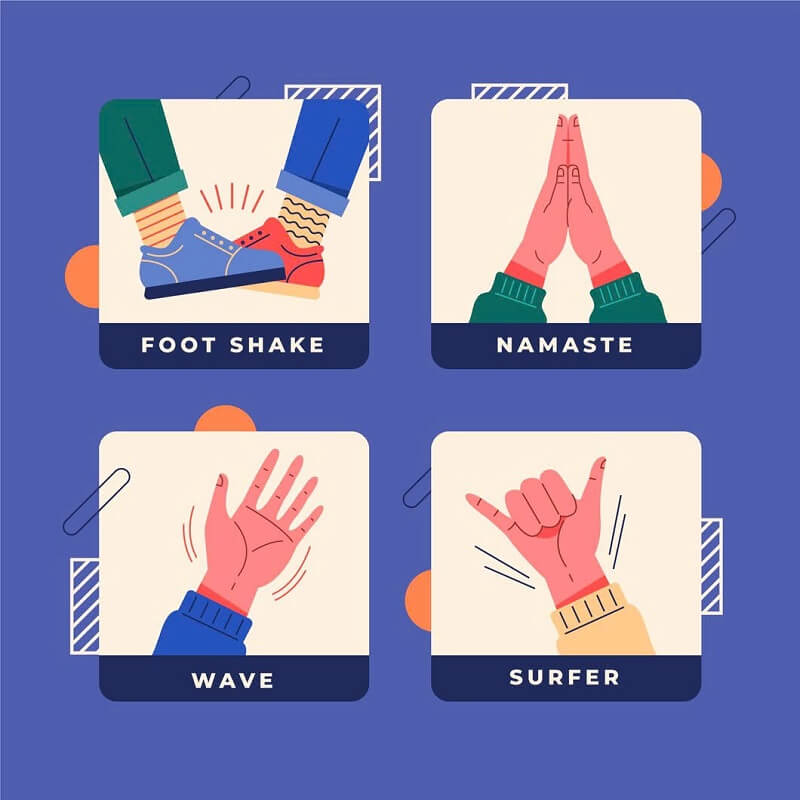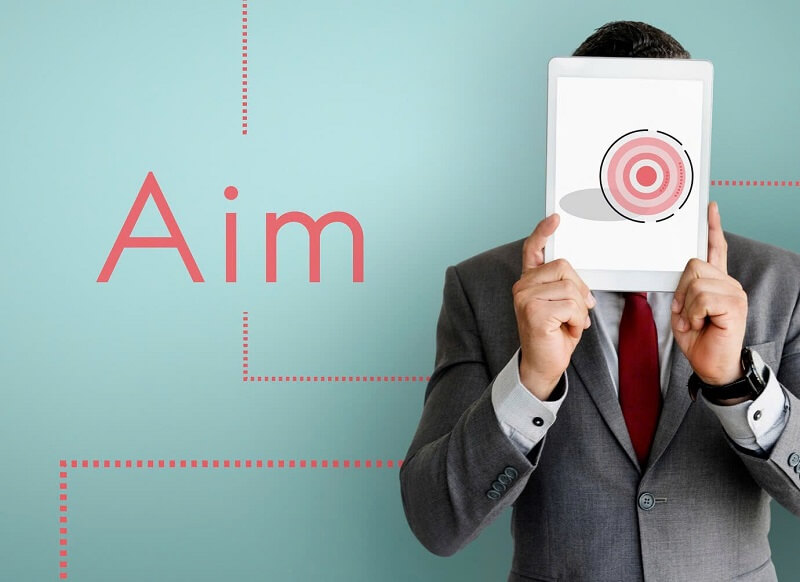Crafting the Perfect Job Interview Tips and Answers
When preparing for an interview, knowing the right job interview tips and answers can make all the difference. Interviews are an opportunity to showcase your skills, but they can also be nerve-wracking if you're not well-prepared. This guide provides insights into common interview questions, the best ways to answer them, and practical tips to stand out from the crowd.
1. Prepare for Common Interview Questions
When it comes to job interview tips and answers, preparation is key. Interviewers often have a set list of common questions they ask every candidate, from discussing your strengths and weaknesses to explaining your career goals. Researching these questions and preparing thoughtful responses can help you respond confidently.

1.1. Research the Company
One of the most important steps is researching the company beforehand. Understanding their mission, values, and recent achievements shows your interest and can help you tailor your answers to align with what they’re looking for in a candidate.
1.2. Understand the Job Role
Beyond general company knowledge, dive deep into the specifics of the job role you’re applying for. Each role has unique responsibilities, and interviewers want candidates who understand what the job entails. Study the job description, noting keywords and phrases, as these often reflect what the company prioritizes in a candidate. For instance, if a job listing emphasizes “teamwork” and “initiative,” prepare to share examples where you demonstrated these qualities in previous roles.
Understanding the role also allows you to anticipate questions directly related to the tasks you’ll be performing. This can help you prepare to address how your skills and experience make you the right fit. When you align your answers with the job’s demands, you demonstrate that you’re not only qualified but also genuinely invested in the position.
2. Highlight Your Strengths and Address Weaknesses
Interviewers commonly ask candidates about their strengths and weaknesses. This question provides an opportunity to showcase your best qualities while being honest about areas you’re actively working to improve. Knowing how to approach this question confidently is one of the best job interview tips and answers you can learn.
2.1. Focus on Relevant Strengths

When discussing strengths, focus on those most relevant to the job. Rather than listing every strength you possess, emphasize those that directly impact your potential performance in the role. For instance, if you’re applying for a customer service role, mention qualities like empathy, patience, and communication. Tailoring your strengths to the position shows that you understand the role’s demands and have the qualities needed to excel.
Providing real-life examples to support your strengths makes your answers more impactful. Instead of simply saying you’re “a strong leader,” you could explain a time when you led a team to overcome a challenging project, detailing how you motivated team members and handled setbacks.
2.2. Acknowledge and Mitigate Weaknesses
Addressing weaknesses can be tricky, but it’s a crucial part of answering the “What are your strengths and weaknesses” question effectively. The key is to be honest without undermining yourself. Choose a weakness that doesn’t directly impact the job requirements and discuss the steps you’re taking to improve. For example, if public speaking is a weakness, you could mention that you’ve been practicing by taking on presentation roles in team meetings.
3. Present Yourself with Confidence
Confidence is essential in interviews, and it’s often noticed within the first few minutes. From your handshake to your tone of voice, confident communication makes a lasting impression. It’s important not to confuse confidence with arrogance; humility combined with self-assuredness is an ideal balance.
3.1. Body Language Matters

Body language is a subtle but powerful way to convey confidence. Simple gestures, like maintaining eye contact, offering a firm handshake, and sitting up straight, communicate attentiveness and interest. Avoid crossing your arms, as it can make you seem closed off. Instead, maintain an open posture that shows you’re engaged and comfortable. Smiling and nodding occasionally can also show that you’re actively listening and responding positively.
3.2. Answer Clearly and Concisely
Answering questions with clarity and brevity is another way to showcase confidence. Long-winded responses can make you seem uncertain, while concise answers show that you understand the question and can express yourself effectively. Aim to keep your answers focused, addressing the question directly, and provide examples where appropriate.
Practice your responses beforehand to achieve this balance, ensuring you’re neither too brief nor overly detailed. A strong answer should convey your point within a few sentences while being informative. Clarity in communication can leave a positive impression on interviewers, showing them you’re articulate and well-prepared.
4. Dress Appropriately for the Interview
What you wear to an interview can make a significant impression. Dressing professionally shows respect for the interviewer’s time and signals that you’re serious about the opportunity. The appropriate attire varies depending on the industry, but dressing one level above the company's dress code is often a safe choice.
4.1. Research the Company’s Dress Code

Look into the company culture to determine the ideal outfit. If you’re applying to a corporate office, business formal attire, like a suit, may be expected. For creative industries, smart casual may be more fitting. Researching this beforehand ensures you’ll be dressed appropriately and avoid standing out for the wrong reasons.
If you’re unsure, don’t hesitate to ask the recruiter or your point of contact for guidance on job interview outfits that align with the company’s expectations. This small step can help you feel more comfortable during the interview, knowing that your appearance aligns with the company’s standards.
4.2. Pay Attention to Grooming and Hygiene
In addition to clothing, personal grooming matters. Clean and neat appearance, such as tidy hair, polished shoes, and minimal accessories, reflects attention to detail. For example, avoid strong scents or flashy jewelry that may distract from your interview. Being well-groomed shows that you’re organized and pay attention to details, qualities that employers often value.
5. Showcase Problem-Solving Skills
Interviewers value candidates who can think critically and solve problems effectively. During interviews, you may be asked behavioral questions that assess these skills, such as “Tell me about a time when you faced a challenging situation at work and how you handled it.” Having a structured answer to such questions demonstrates that you approach challenges thoughtfully.
5.1. Use the STAR Method

The STAR method (Situation, Task, Action, Result) is a popular technique for answering behavioral questions. Begin by describing the Situation you faced, then outline the Task involved. Next, explain the Action you took, and conclude with the Result. This format provides a clear, organized answer, making it easy for interviewers to understand your thought process.
For instance, if asked about handling a difficult client, you could describe a past experience where you successfully resolved the situation by listening to the client’s concerns, responding calmly, and offering a solution. This response format showcases both your problem-solving and communication skills.
5.2. Emphasize Positive Outcomes
Whenever possible, highlight positive outcomes of your actions. Showing how you resolved an issue, saved time, or improved a process will strengthen your answer and make it more memorable. Employers seek candidates who bring value to their teams, so connecting your solutions to tangible results reflects well on your capability and commitment.
6. Ask Insightful Questions
Asking questions at the end of an interview is a chance to demonstrate your interest in the role and gather valuable information. It’s also an opportunity to show that you’re evaluating whether the company is the right fit for you. Insightful questions indicate you’ve thought carefully about the position and are genuinely interested in the organization.
6.1. Inquire About Team Dynamics and Culture

Asking about team dynamics can provide insight into the working environment and how the company fosters collaboration. You could ask, “How would you describe the company culture?” or “Can you tell me more about the team I’ll be working with?” These questions show that you’re considering how you would fit into the team and are interested in building strong professional relationships.
This information can also help you understand whether the company’s values align with your own, which is crucial for long-term job satisfaction. Knowing the type of work culture you thrive in enables you to assess if the company’s environment supports your growth and well-being.
6.2. Seek Clarity on Role Expectations and Success Metrics
Understanding how your performance will be measured is essential for setting goals and meeting employer expectations. You could ask, “What are the key success metrics for this role?” or “What does a typical day look like in this position?” These questions show that you’re proactive and willing to meet the role’s demands.
This type of inquiry can also give you an advantage if you get the job, as you’ll know from the outset what’s expected of you. Having this clarity allows you to hit the ground running and focus on the goals most important to your employer, enhancing your potential for success.
7. Practice Effective Communication Skills
Communication skills are crucial in any role, and interviews are the perfect opportunity to showcase them. Strong communicators listen actively, express themselves clearly, and demonstrate empathy. Practicing these skills can help you leave a lasting impression and improve your chances of landing the job.
7.1. Engage in Active Listening
Active listening involves paying full attention to the speaker, showing interest, and responding thoughtfully. During your interview, avoid interrupting and nod to indicate you’re following along. After the interviewer finishes, take a brief pause before answering to show you’re considering their question carefully.
Active listening also includes asking clarifying questions if something is unclear, as it demonstrates that you’re engaged and committed to understanding the company’s expectations. This quality is especially valued in roles that require teamwork, as it shows you’re attentive and respectful of others’ perspectives.
7.2. Show Empathy and Understanding

Expressing empathy and understanding can make your responses more impactful. For example, when discussing a past work challenge, focus not only on your actions but also on how you considered the needs and feelings of others involved. This approach shows that you’re not just task-focused but people-oriented as well.
Empathy is a valuable trait in roles that involve client interaction, team collaboration, or leadership. Employers look for candidates who can balance their drive for results with compassion and interpersonal skills. Demonstrating empathy during your interview can set you apart as a well-rounded, emotionally intelligent candidate.
8. Prepare for Unexpected Questions
Interviewers sometimes throw in unexpected questions to gauge your quick thinking and adaptability. These questions might be situational, hypothetical, or even quirky. Preparing for them can help you remain calm and composed, even if the question is surprising.
8.1. Respond with Poise and Thoughtfulness
When faced with an unexpected question, take a moment to think before responding. Interviewers aren’t necessarily looking for a perfect answer but rather observing your reaction under pressure. For example, if asked, “If you were an animal, which one would you be?” explain your choice by connecting it to qualities valuable for the role.
Staying calm and providing a thoughtful answer shows adaptability and resilience, qualities that employers value in dynamic work environments. Practicing responses to a variety of questions can also improve your comfort level with different types of inquiries.
8.2. Show Adaptability and a Positive Attitude
When answering unexpected questions, it’s essential to demonstrate flexibility and a positive attitude. Employers want to see how you handle unanticipated situations and whether you can stay calm. Even if the question is unusual or surprising, display optimism and a willingness to find solutions.
For example, if asked about a difficult situation you've encountered at work, highlight how you overcame the challenge and the lessons you learned. By showing adaptability and a positive approach, you create the impression that you can handle any situation, even the most unexpected ones.
Conclusion
Mastering job interview tips and answers is about more than memorizing responses; it’s about preparing thoughtfully and presenting your authentic self. From researching the company to practicing clear communication, these strategies will help you stand out and make a lasting impression on potential employers. By applying these tips, you’ll be well-equipped to approach your next interview with confidence and professionalism.
- Essential Job Description Supervisor Guide for Success
- Essential Job Description Sales Guide for Success
- Job Description Restaurant Manager – Roles & Skills
- Understanding the job description project coordinator role
- Job Description HR Assistant—Roles and Responsibilities
- Essential Guide to Job Description COO
- Comprehensive Job Description Admin Assistant Insights
- A Comprehensive and In-Depth Job Description for HR Generalist
- Comprehensive Guide: Job Description Executive Chef
- Top 5 Best Job Search Sites for Easy Job Applications
- QA Job Description: Key Skills and Roles in 2025
- The Complete Clerk Job Description Guide
- What Is Your Greatest Weakness? Mastering the Answer
- Master the Phone Interview for Career Success
- Crafting the Perfect CV Personal Statement
- What is a Job Description Warehouse Worker?
- Detailed job description teller bank for career growth
- Comprehensive Job Description Store Manager Guide
- Comprehensive Guide to Job Description Personal Assistant
- Comprehensive Guide to Job Description Nursing Assistant
- Comprehensive Job Description Graphic Designer Guide
- Comprehensive Job Description Chief of Staff Guide
- Comprehensive Job Description Cleaner Guide
- Comprehensive Job Description Assistant Manager
- Comprehensive Guide to Job Description Account Executive
- Comprehensive Guide to Secretary Job Description
- Comprehensive Job Description of Teaching Assistant
- Comprehensive Job Description for a Social Media Manager
- Mastering STAR Interview Techniques: The Ultimate Guide
- “I Hate My Job” – What You Should Do Next
- What Is a Job Description Team Leader?
- A Complete Guide to Job Description Sales Assistant
- Comprehensive Job Description for Security Guards
- Detailed Job Description for HR Manager
- The Ultimate Guide to Job Description Medical Assistant
- Job Description Housekeeping: Key Roles & Responsibilities
- Job Description Merchandiser: Key Roles & Skills
- Job Description Product Manager: Roles and Responsibilities
- Job Description Account Manager: Roles and Responsibilities
- Job Description Marketing Manager: Roles & Skills
- Job Description HR: The Essential Guide for HR Professionals
- Best Jobs for Introverts: Top Careers for Quiet Thinkers
- What is Your Greatest Strength? How to Answer Effectively
- Job Description Data Entry Guide
- Detailed Job Description Sales Manager Guide
- The Importance of Work Experience on a Resume
- Comprehensive Job Description Sales Representative Insights
- Comprehensive Job Description of Project Manager
- Job Description Executive Assistant: Key Responsibilities
- Job Description for Sales Executive: Key Roles and Skills
- Job Description Customer Service Roles
- Job Description Business Analyst: Roles and Skills
- Comprehensive Job Description for a Receptionist
- Mastering the Sales Associate Job Description
- Understanding Accountant Job Description in Detail
- Hard Skills vs Soft Skills: Key Differences and Examples
- Why Do You Want to Work Here? Best Answer and Examples
- How to Decline a Job Offer Politely and Gracefully
- Comprehensive Job Description of Waitress
- Job Description Cashier: Key Responsibilities and Skills
- Where Do You See Yourself in 5 Years?
- Mastering Problem Solving Skills for Career Success
- Effective Job Description Sample Guide
- Behavioral Interview Questions Guide
- Comprehensive Job Description for an Administrative Assistant
- Essential Job Titles for Career Success
- Master Leadership Skills for Effective Management
- How to Write a Perfect Motivational Letter
- CV vs Resume: Understanding the Key Differences
- Top Reasons for Leaving a Job Today
- What Is a Resignation Letter? Key Details You Must Know
- How to Write a Perfect Job Application
